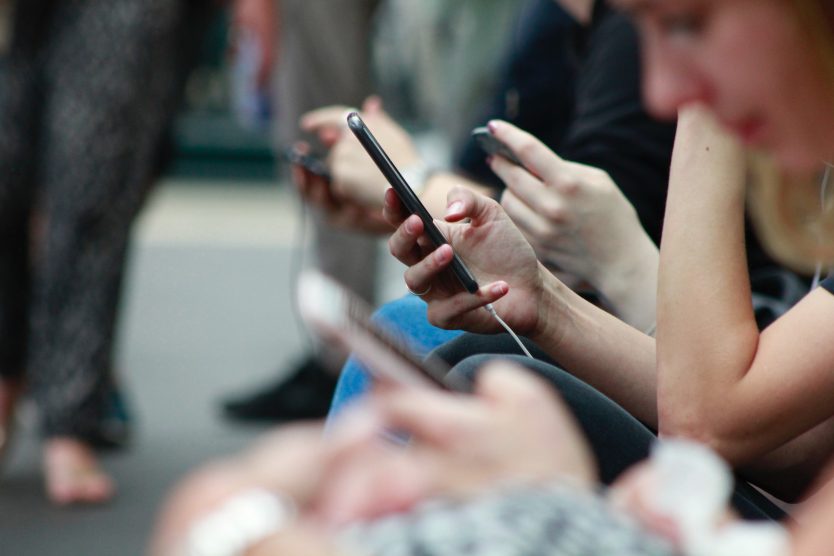We all love to scroll through our social media feeds, following our friends, celebrities and causes that matter to us.
When can that scrolling do harm? When it negatively influences our health. Social media and its effects on body image can have an effect on our mental health, and have consequences for the choices we make along with our physical well-being.
Let’s take a look at what social media can do to you, and what you can do about it.
Social Media Causes Negative Comparisons
Looking at others on social media – either friends or celebrities – can result in comparisons that are harmful to self image. In a study of adolescents and how they experience social media in relation to mental health and well-being, teens discussed how comparing oneself to people on social media “could trigger negative thoughts and feelings, and eventually lead to poor health.”1
Young women described how the images of models – even when they knew they had been altered or filtered – still made them feel insecure. They said that in turn leads to poor health. The young women also said those types of images created “unrealistic expectations among boys about what girls should look like.”1
Social Media Can Create Body Dissatisfaction
Another negative impact of social media is a negative self-evaluation of one’s own appearance, known as body dissatisfaction. This type of negative evaluation can happen at any age but is particularly prevalent in the teenage years.
Studies show that an emerging factor in body dissatisfaction and an increase in those negative feelings is social media use. Social media can create appearance ideals that promote thinness in females and muscularity in males. That in turn results in dissatisfaction with self appearance when individuals can’t look like what they see on social media.2
It’s not just affecting young people. In a study of people from 19-92 years old, researchers found that increased social media use predicted an increase in body dissatisfaction.3
Social Media’s Impacts Can Lead to Eating Disorders
The type of negative comparisons and body dissatisfaction can lead to serious health issues, like eating disorders.
Researchers studying people aged 15 to 35 found a link between comparisons of the physical appearance of those on social media and personal body dissatisfaction along with a drive for thinness. Researchers also expressed concern that the widespread use of social media would increase this dissatisfaction and therefore make people more vulnerable to eating disorders.4
Another study of college-aged women found a relationship between body image and dissatisfaction, and “disordered eating behaviors.” One of the more significant findings was that unrealistic and unattainable body ideals, known as “thin-ideal,” is widespread in social media. This ideal can increase body dissatisfaction and promote unhealthy measures, such as dieting and disordered eating.5
So while there may not be a direct connection between social media and harmful actions like an eating disorder, it certainly seems to play a part. And there are more impacts than body image, with some studies showing increased social media use causing an increase in “somatic symptoms” such as headaches, body aches, and chest pain.3
How Can Social Media Help?
It’s highly unlikely that social media will go away, so what are some ways that social media can help us practice good health?
It’s up to us.
One way is by actively following social media accounts that don’t make us feel ashamed of our bodies. Social media can positively impact our body image when we follow health and wellness accounts, fitness accounts, or healthy eating sites. We can get inspiration from realistic people, allowing us to maintain a healthy body image.6 Following a social media fitness “influencer” might even inspire you to exercise more often.7
There have also been body positivity campaigns that have created a safe place for all body types to be celebrated. The Dove Campaign for Real Beauty and the Project HEAL #WhatMakesMeBeautiful campaign are two examples.8
If you have an adolescent, particularly a teenage girl, talk to her about the unrealistic expectations of trying to look like a supermodel. Explain how the filters and photoshopped images are unrealistic and make everyone look different than they really do. A positive mother–adolescent relationship can have a beneficial impact on the body dissatisfaction caused by social media.9
Stop The Scroll
We would never suggest that you should give up social media altogether, but it’s important to understand how your feed can impact your health.
Make an effort to take a break, put down your smartphone, and try a new practice. Keep a journal, practice some yoga, or take advantage of the physical and mental health benefits of simply being outside.10
If you’re finding that negative feelings continue, your eating behaviors are changing, or you have other health concerns, seek medical advice.
















